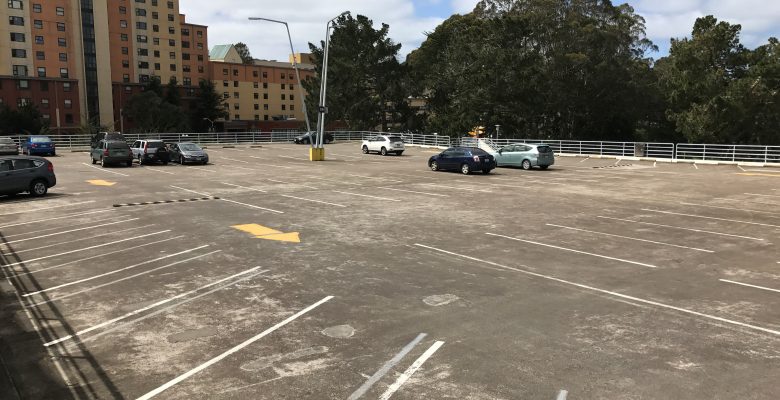Abstract
Parking is among the most discussed topics in local politics, with citizens and business owners frequently concerned that supplies are too low. However, numerous research efforts have shown that parking is routinely oversupplied in single-use districts in the United States, and others have documented the same trend in mixed-use districts. This research considers parking supply and usage in 27 mixed-use districts around the country, the largest sample of districts examined in this type of study. Sufficient supply being defined as that which would leave 15% of spaces open, it was found that parking is oversupplied by 65% on average. Differences in oversupply were not systematically explained by commute mode share, region, type of place, or any other dimension that the authors were able to identify. Indeed, oversupply in places that have identified parking shortages averages 45%. That finding suggests that parking is often oversupplied to such an extent that it is nonbinding on travel decisions and has become unmoored from the typical relationship between supply and demand. Given the perception of shortage even where there is a documented oversupply suggests that better parking management rather than an increase in supply could be a more effective tool for mitigating perceived shortages.
Read the full article in Transportation Research Record
Authors: Rachel R. Weinberger; Joshua Karlin-Resnick

